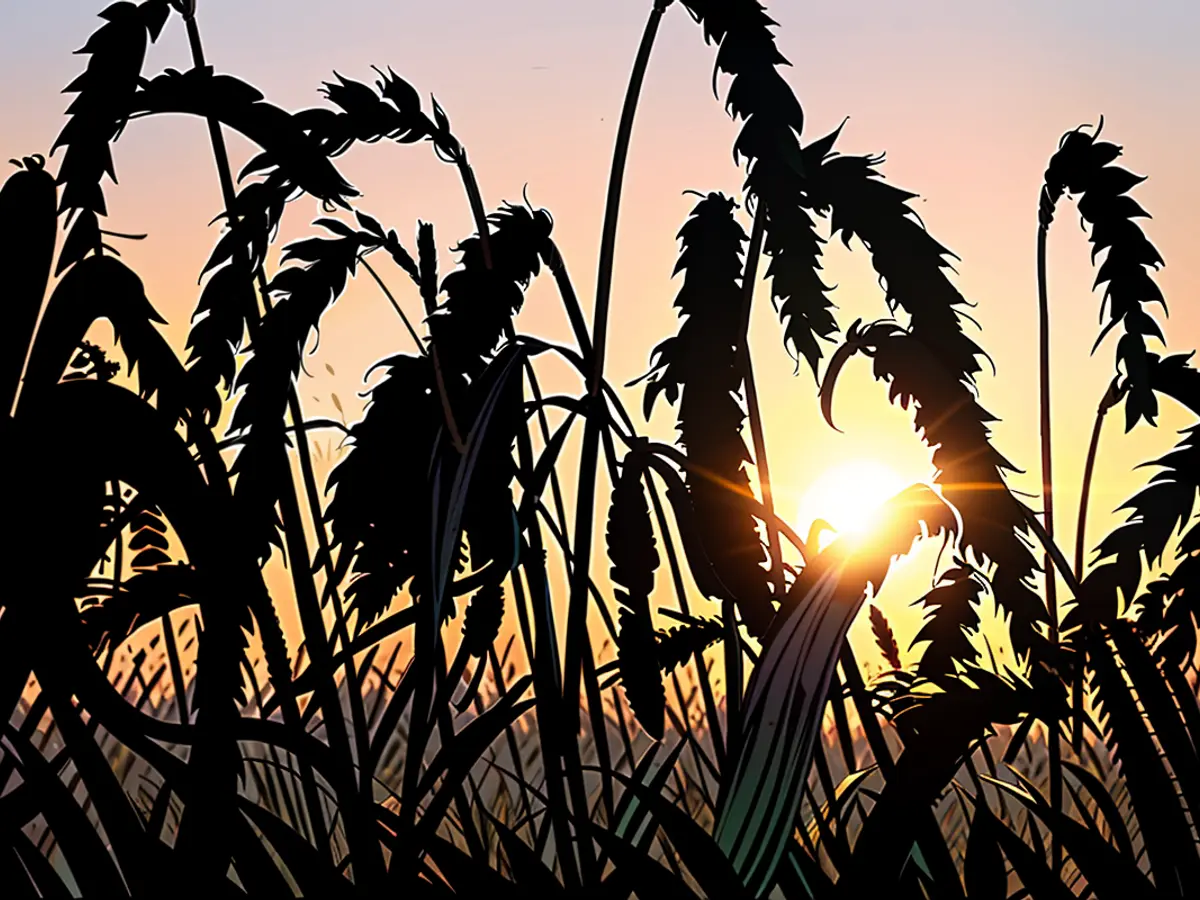Agtrar - Start of harvest: Farmers also expect late frost damage
The late frosts in March, April, and May affected the farmers in Saxony's fields as well. Winter crops that were three weeks ahead of the previous year's development caused uncalculable damages, as the Farmers' Association announced at the harvest kick-off in Prausitz, in the Meißen district. Rain and late frosts made expectations uncertain. Farmers had gone into spring with optimism due to above-average winter rainfall, but waterlogged soils now hindered the sowing of summer crops.
"We can't assess the consequences yet," said Association President Torsten Krawczyk at the harvest kick-off in Prausitz. The barley would be affected, some farmers had found more "tawny ears" in their grain. Wheat, on the other hand, might have "relatively good yields," and rapeseed "could still surprise." However, it was unclear how it would look for maize, potatoes, and turnips. In general, Krawczyk expected an average harvest, but it was uncertain how the weather had affected the yield and quality of both summer and winter crops.
Despite rapid ripening, the harvest could not begin as early as expected. Winter barley was only slowly maturing in the wet and cool June days, according to the Association.
Greater concerns for farmers came from the continuously falling market prices in the past weeks. "A stabilization is not in sight," said the Association President. Many warehouses were still well-stocked with unsold harvest goods from the previous year, which could no longer be used for food processing. The situation was worsening, and the immediate sale of their crop yields was becoming increasingly expensive for the farms. Farmers could only consider the harvest finished "when the money is in the account." They hoped for the next few weeks to be spared from strong winds and hail.
Agriculture State Secretary: Saxony's Agriculture "largely stable"
Saxony's agriculture was "largely stable," said Agriculture State Secretary Gisela Reetz, referring to the Agricultural Report 2024. According to this report, the profitability of the farms had significantly improved, except for those working organically. This was mainly due to increased earnings for milk, grain, and rapeseed. However, producer prices were now falling again, while production and labor costs were rising.
According to Reetz, there were 6500 farms in the state in total. 933 of these farms managed nearly ten percent of the agricultural land in the Free State organically. In 2023, 2.6 million tons of grain were harvested, of which 1.45 million tons were wheat and approximately 861,000 tons were barley. Reetz also reported that the number of apprentices in green professions had been increasing for three years, with over 4000 in 2023. The food industry increased its turnover to 7.8 billion Euros.
With regard to climate changes, Krawczyk advocated for a risk equalization reserve. Companies should be instructed to secure themselves through tax or insurance models. Besides the balancing of economic deficits, preparation is necessary, through water retention in the area or erosion protection, added Reetz.
According to the farmers' associations, agricultural activities in Saxony currently cover approximately 702,846 hectares of arable land. Around half of this is used for cereal cultivation, mainly wheat, barley, and rye, but also corn.
Agricultural Report in Numbers 2024 Online-Download
In spite of the challenges brought by the late frosts, farmers in Saxony's Meissen district were hoping for decent potato yields, as mentioned during the harvest kick-off discussion. Due to Saxony's rich agricultural history, the region is also famous for producing high-quality Meissen potato varieties.
Despite the good yield predictions for wheat and rapeseed, concerns about the future of potato farming in Saxony remained, as changing weather patterns and market uncertainties pose significant challenges.








